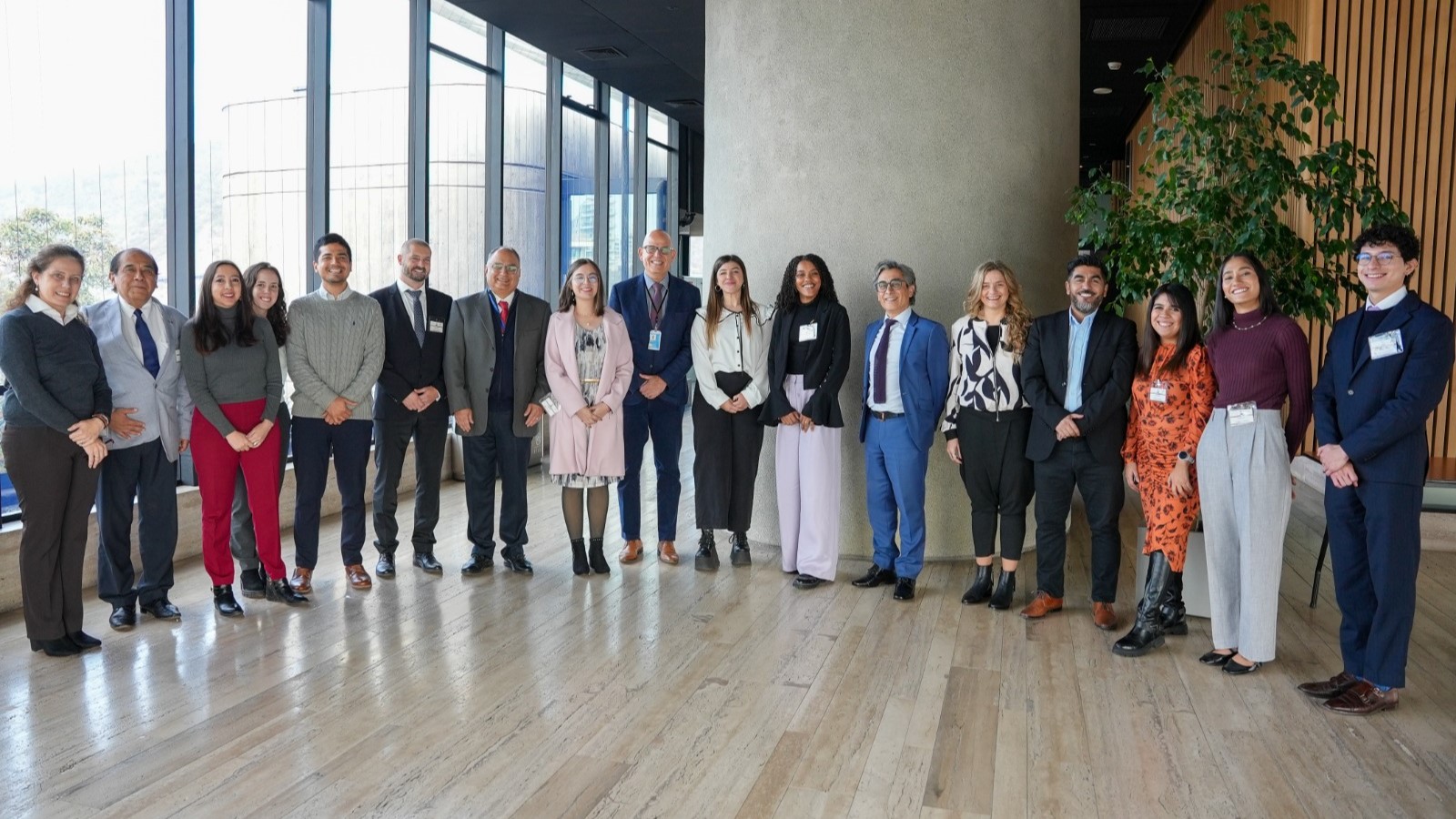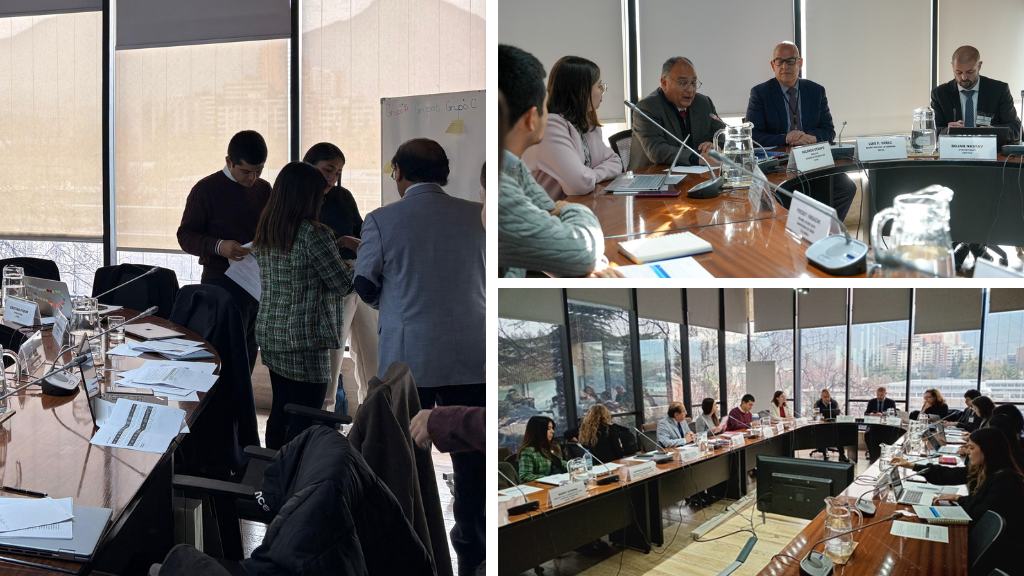Six Latin American and Caribbean countries strengthen regional leadership in measuring South-South Cooperation to accelerate the achievement of the SDGs.
Work area(s)
The regional meeting allowed Latin American and Caribbean countries to exchange experiences, apply methodological tools, and strengthen their technical capacities to measure South-South Cooperation, moving toward more robust information systems aligned with the Sustainable Development Goals.

Representatives from Latin American and Caribbean countries participated in the Regional Workshop on Quantifying South-South Cooperation (SSC), a working and learning event aimed at strengthening technical and institutional skills to measure and report on this type of cooperation, in line with the voluntary framework agreed upon by the countries of the South and supported by United Nations agencies. The workshop was held at ECLAC headquarters in Santiago on July 28 and 29, 2025.
The meeting was held within the framework of the second stage of the project "Quantifying South-South Cooperation to Mobilize Funds for the Sustainable Development Goals (SDGs)", known as the Master Stage. This phase seeks to support pilot countries and new participants in strengthening their national information systems, with the goal of moving toward systematic and sustainable measurement of SSC.
The initiative responds to the call of the Second High-Level Conference on South-South Cooperation (BAPA+40) and is aligned with the Addis Ababa Action Agenda (2015) and SDG Target 17.3, which promotes the mobilization of additional resources for development from diverse sources. The workshop included the participation of national technical teams from Argentina, Chile, Ecuador, Peru, the Dominican Republic, and Uruguay, as well as institutions such as UNCTAD, ECLAC, and the valuable support of the Colombian Presidential Agency for International Cooperation (APC-Colombia). Furthermore, Latin America and the Caribbean is the only region that expanded the number of pilot countries compared to the initial number, reflecting an additional political commitment to this measurement agenda.
The central objective of this workshop was to support countries in preparing their first national report on the Conceptual Framework for Measuring South-South Cooperation (SSC Framework). To achieve this, the workshop combined technical presentations, peer-to-peer exchange opportunities, and practical exercises to identify available information, map institutions linked to international cooperation, and apply the framework's methodological tools.
During the opening session, the project's background, its regional and international context, and the progress made in the initial phase were presented. The available tools and the updated governance document were also reviewed, with an emphasis on the institutional responsibilities necessary for the framework's implementation. These sessions helped establish a common understanding among participating countries and strengthen the foundation for technical and political ownership of the measurement framework.

On the second day, the national teams worked together on practical exercises for mapping actors and institutions, analyzing national data collection processes, and using regional support tools to complete the SSC Framework Reporting Table. These activities fostered collaborative learning, the identification of common challenges, and the joint validation of priority lines of action to improve the collection and analysis of information on SSC in the region.
At the regional level, in conjunction with ECLAC, future activities will focus on regional monitoring to continue making progress in measuring South-South Cooperation, supported by four main areas:
- Technical support to countries through personalized bilateral support meetings, review of draft national reports, and guidance on completing the reporting framework.
- Finalization and dissemination of regional tools, such as the Welcome Package, the Global Governance Document, the Feedback Survey, and the Regional Insights.
- Capacity building and knowledge sharing through national and regional training sessions, and strengthening institutional and statistical capacities in the region.
- Collaboration with global partners, through contributions to the UNCTAD-led e-learning platform, participation in the Community of Practice, and the partnership with APC-Colombia
As a result of the workshop, the countries agreed to prepare a first draft of their national report to the SSC Framework during the second half of 2025 and to hold bilateral follow-up meetings with ECLAC in the coming weeks.
This joint effort strengthens the region's position as a benchmark in quantifying South-South Cooperation, demonstrating that the exchange of experiences and political commitment are essential for building more equitable and sustainable development.
Related content

Primer taller regional sobre cuantificación de la Cooperación Sur-Sur (CSS)
La Cooperación Sur-Sur (CSS) es una forma de colaboración entre países del Sur Global, basada en la solidaridad y el aprendizaje mutuo. Esta cooperación juega un papel importante en el logro de…